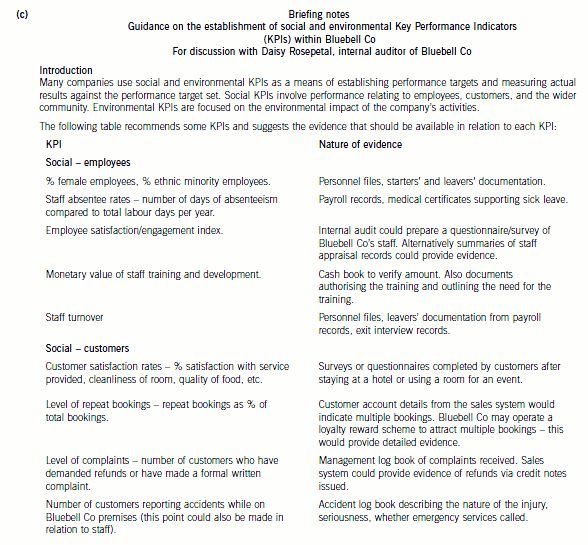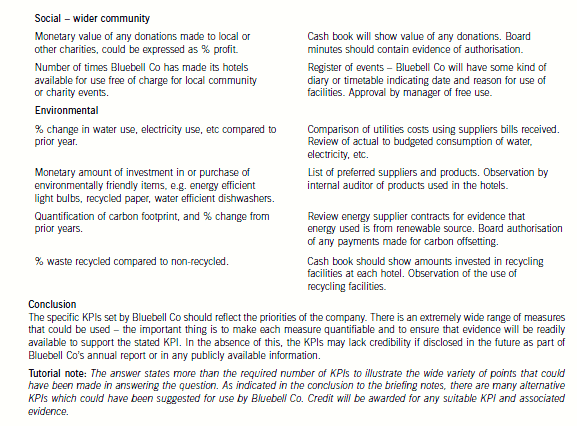什么?全国考生2020年ACCA考试不知道看什么书?那么下面的教材宝典你必须收藏
发布时间:2020-01-09
新年伊始,步入2020年,离3月份的ACCA考试越来越近了,相信感兴趣的小伙伴都已经报了名,但51题库考试学习网听说有很多小伙伴们不知道复习应该看什么书,手足无措,不知道该怎么复习。不用担心这个问题,51题库考试学习网会逐一为大家解答困惑:
大家都知道教材是考试复习的基础,跟其他考试一样,考ACCA也是如此,几乎每个ACCA的小伙伴都会买教材,但是并不是每一个小伙伴都会把教材读懂读透。习题固然要练,但是教材才是考试的出题来源,因此小伙伴有必要在练题之前先确保自己已经熟练掌握教材的内容了。希望对大家有所帮助!
在这里51题库考试学习网建议大家可以利用的教材有BPP教材和FTC教材,两者的差别在于BPP教材是全球ACCA使用最多的版本,而FTC版是ACCA官方版本教材,在全球使用也比较多。相对于BPP教材,FTC这套教材的优点是简洁,基本上每门课教材都比BPP版薄,但是FTC对F4阶段的ACCA备考并不是那么适用,其难度较之BPP版有所加大,所用单词也要复杂一些。因此BPP教材的优点也就是相当于FTC来说英语单词较为基础,容易被初学者吸收。同时对于最新FTC版有些地方讲解不是很细致,单凭它参加考试有一定难度
目前这两种都较适合中国ACCA考生,如何选择的关键就在于考生自己,英语基础强一点的,学习效率高的考生就可以选择FTC可能效果好一些;反之,如果是英语相对薄弱一点的,学习能力一般的考生,就可以选择基础的BPP教材。其实,没有万能的学习方法,适合自己的学习方法那才是最好的复习方法,可以借鉴但不提倡照搬。
需要注意的是,每一年ACCA的14门课都会更新他们的TEXT BOOK和练习册。而这两本书,练习册往往被很多小伙伴重视,却偏偏忽视TEXT BOOK。很多的同学复习的时候喜欢记要点,而不愿意花时间读原汁原味的原版书籍。其实这是一个很不好的习惯,既不利于我们准确地把握知识点,也影响了我们专业英语能力的提高。
51题库考试学习网建议各位小伙伴在考试的三个月前,一定要用心看TEXT BOOK。先用一到两个月把书认真地读一遍,再上课、做题直到考前冲刺。考完试后不要着急把书丢在一边拿,大家可以把自己喜欢的章节保留下来,便于以后进一步学习或闲暇时看看读读。当然,千万不要忘记关注ACCA官网的更新,及时下载学习资料。
以上就是报考ACCA的具体规则和流程,想要了解更多2020年ACCA的相关资讯,欢迎加入关注51题库考试学习网,51题库考试学习网将不定时更新你想了解的咨询~
下面小编为大家准备了 ACCA考试 的相关考题,供大家学习参考。
(b) ‘opinion shopping’; (5 marks)
(b) ‘Opinion shopping’
Explanation of term
‘Opinion shopping’ occurs when management approach auditing firms (other than their incumbent auditors) to ask their views
on the application of accounting standards or principles to specific circumstances or transactions.
Ethical risks
The reasons for ‘opinion shopping’ may be:
■ to find alternative auditors; or
■ to get advice on a matter of contention with the incumbent auditor.
The member who is not the entity’s auditor must be alert to the possibility that their opinion – if it differs from that of the
incumbent auditor – may create undue pressure on the incumbent auditor’s judgement and so threaten the objectivity of the
audit.
Furthermore, by aligning with the interests of management when negotiating taking on an engagement, an incoming auditor
may compromise their objectivity even before the audit work commences. There is a risk that the audit fee might be seen to
be contingent upon a ‘favourable’ opinion (that is, the audit judgement coinciding with management’s preferences).
Employed professional accountants (accountants in industry) who support their company’s management in seeking second
opinions may call into question their integrity and professional behaviour.
Sufficiency of current ethical guidance
Current ethical guidance requires that when asked to provide a ‘second opinion’ a member should seek to minimise the risk
of giving inappropriate guidance, by ensuring that they have access to all relevant information.
The member should therefore:
■ ascertain why their opinion is being sought;
■ contact the auditor to provide any relevant facts;
■ with the entity’s permission, provide the auditor with a copy of their opinion.
The member’s opinion is more likely to differ if it is based on information which is different (or incomplete) as compared with
that available to the incumbent auditor. The member should therefore decline to act if permission to communicate with the
auditor is not given.
‘Opinion shopping’ might be less prevalent if company directors had no say in the appointment and remuneration of auditors.
If audit appointments were made by an independent body ‘doubtful accounting practices’ would (arguably) be less of a
negotiating factor. However, to be able to appoint auditors to multi-national/global corporations, such measures would require
the backing of regulatory bodies worldwide.
Statutory requirements in this area could also be more stringent. For example, an auditor may be required to deposit a
‘statement of circumstances’ (or a statement of ‘no circumstances’) in the event that they are removed from office or resign.
However, disclosure could be made more public if, when a change in accounting policy coincides with a change of auditors,
the financial statements and auditor’s report highlight the change and the auditors state their concurrence (or otherwise) with
the change. This could be made a statutory requirement and International Standards on Auditing (ISAs) amended to give
guidance on how auditors should report on changes.
Further, if the incoming auditor were to have a statutory right of access to the files and working papers of the outgoing auditors
they would be able to make a better and informed assessment of the desirability of the client and also appreciate the validity
(or otherwise) of any ‘statement’ issued by the outgoing auditor.
A new internal auditor, Daisy Rosepetal, has recently joined Bluebell Co. She has been asked by management to
establish and to monitor a variety of social and environmental Key Performance Indicators (KPIs). Daisy has no
experience in this area, and has asked you for some advice. It has been agreed with Bluebell Co’s audit committee
that you are to provide guidance to Daisy to help her in this part of her role, and that this does not impair the
objectivity of the audit.
(c) Recommend EIGHT KPIs which could be used to monitor Bluebell Co’s social and environmental
performance, and outline the nature of evidence that should be available to provide assurance on the
accuracy of the KPIs recommended. Your answer should be in the form. of briefing notes to be used at a
meeting with Daisy Rosepetal. (10 marks)
Note: requirement (c) includes 2 professional marks.


The following information is relevant for questions 9 and 10
A company’s draft financial statements for 2005 showed a profit of $630,000. However, the trial balance did not agree,
and a suspense account appeared in the company’s draft balance sheet.
Subsequent checking revealed the following errors:
(1) The cost of an item of plant $48,000 had been entered in the cash book and in the plant account as $4,800.
Depreciation at the rate of 10% per year ($480) had been charged.
(2) Bank charges of $440 appeared in the bank statement in December 2005 but had not been entered in the
company’s records.
(3) One of the directors of the company paid $800 due to a supplier in the company’s payables ledger by a personal
cheque. The bookkeeper recorded a debit in the supplier’s ledger account but did not complete the double entry
for the transaction. (The company does not maintain a payables ledger control account).
(4) The payments side of the cash book had been understated by $10,000.
9 Which of the above items would require an entry to the suspense account in correcting them?
A All four items
B 3 and 4 only
C 2 and 3 only
D 1, 2 and 4 only
声明:本文内容由互联网用户自发贡献自行上传,本网站不拥有所有权,未作人工编辑处理,也不承担相关法律责任。如果您发现有涉嫌版权的内容,欢迎发送邮件至:contact@51tk.com 进行举报,并提供相关证据,工作人员会在5个工作日内联系你,一经查实,本站将立刻删除涉嫌侵权内容。
- 2020-01-09
- 2020-03-01
- 2020-03-12
- 2020-01-09
- 2021-01-16
- 2020-01-09
- 2020-03-01
- 2020-03-01
- 2020-01-09
- 2020-03-01
- 2020-03-12
- 2020-01-09
- 2020-01-09
- 2019-07-20
- 2020-03-01
- 2020-03-01
- 2019-07-20
- 2020-03-08
- 2020-03-01
- 2020-01-09
- 2019-07-20
- 2020-03-01
- 2019-07-20
- 2020-01-09
- 2019-07-20
- 2021-04-03
- 2020-01-09
- 2020-03-01
- 2020-01-09
- 2019-07-20